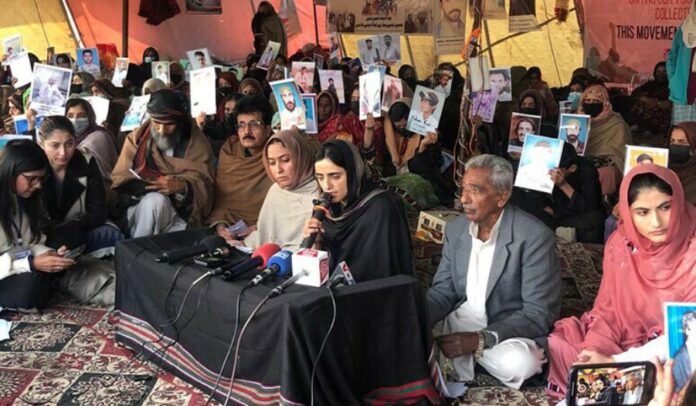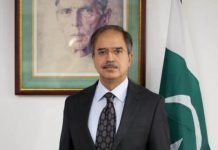ISLAMABAD, JAN 23: Baloch protesters, who had been camped outside Islamabad’s National Press Club (NPC) since December, called off their sit-in on Tuesday.
The announcement came a day after the NPC penned a letter to the Islamabad police requesting the removal of the Baloch rights camp. The NPC’s request was later withdrawn following severe criticism from all quarters, including journalists.
The protesters had been demonstrating in a sit-in organised in front of the NPC by the Baloch Yakjehti Committee (BYC) against enforced disappearances and extrajudicial killings.
The camp was established on December 22 and had persisted despite harsh weather. Further, organisers of the Islamabad sit-in had also accused police of harassing their supporters and profiling them as well as registering first information reports against them.
In the letter to the Islamabad police, the NPC had requested that a plan be drawn up to relocate the protesters to a different location so “the difficulties for the press club and all residents and the business community can be reduced”.
The letter said that the press club’s sole means of income were press conferences and seminars held at its premises. It said the sit-in and its related issues such as security requirements were impeding not only the club’s members but also the holding of its events, as well as the local business community and residents.
Responding to the letter, Dr Mahrang Baloch, one of the protest organisers, had expressed dismay and said the journalist and media community “have an obligation to stand with people whose voices are neglected”.
Addressing a late-night press conference, she had also said demonstrators were “under severe pressure to vacate the camp”.
“We are being harassed and threatened, with police circulating false information and journalists being stopped from visiting us. We are told there is a possible threat around the press club area,” she had said.
In a press conference today, Mahrang termed the letter by the NPC a “stain” on the profession of journalism.
“We will take back the message of hate we received. We will remember everything that has happened with us,” she asserted, adding that the protesters would head back to Balochistan tomorrow.
“We are not against the state, the state is against us,” she said, adding that Baloch protesters had been trying to communicate with the authorities to find a solution to the issue of missing persons.
“It is a shame that despite election campaigns being under way, no political party has spoken about the issue of missing persons,” she said.
Earlier today, the Human Rights Commission of Pakistan said that it stood in solidarity with the Baloch camp that “has faced persistent harassment from local law enforcement as well as dismissal from government authorities”.
It also said it was “deeply concerned” by efforts to uproot the camp.
“The validity of the Baloch protestors’ demands cannot continue to be ignored, and must be heeded with the legitimacy it deserves, not with undue force or defamation,” the commission said.
NPC says letter ‘taken out of context’
Separately, the NPC clarified that its request regarding the removal of the Baloch protest camp was “taken out of context” and “viewed with suspicion”.
In a fresh statement today, a copy of which is available with Dawn.com, the NPC said it had always given a platform to Baloch protesters and yesterday’s letter did not have intentions to hurt anyone or “take a particular stance”. Rather, it had called for the safety of the demonstrators, it claimed.
“The request came in light of present security concerns (which include threats of attacks) and took into consideration the safety and well-being of the journalist community,” the NPC stated.
It said the letter addressed to the Islamabad police yesterday was withdrawn owing to a “misunderstanding”. The NPC alleged that certain people operating “with an agenda” were trying to create a rift between the club and Baloch protesters.
It concluded that the NPC had always accommodated various groups and would continue providing a platform to those who needed it.

















